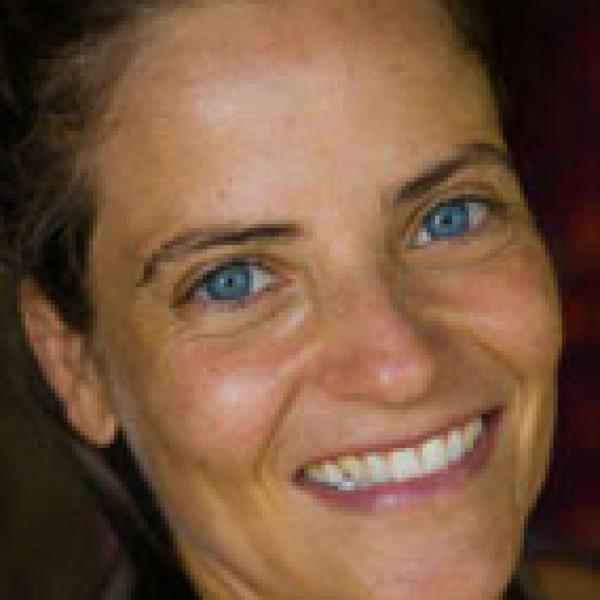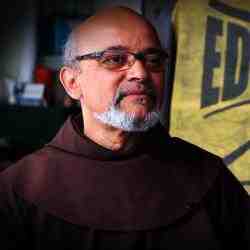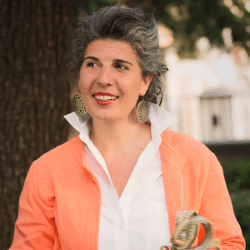Introduction
Through her project, Expedição Vaga Lume (Firefly Expedition), which delivers libraries to rural communities in Amazonia and trains teachers to be "Reading Mediators," Laís Fleury Cunha is contributing to the literacy of children in the region and encouraging children to take pleasure in reading, expanding their opportunities for personal development.
The New Idea
Laís is contributing to the culture and development of rural communities in the Amazon region by encouraging children to read. Her project distributes libraries with 300 books (books for children and youth, as well as support books for teachers) to villages lacking public libraries and trains teachers as Reading Mediators. Another innovation of Expedição Vaga Lume is that it is carried out on site in rural schools in the Brazilian Amazon, in contrast with the existing model where teachers have to come to a central location to receive training.
The Problem
There is a very low level of investment in education in Brazil. This difficulty is particularly acute in rural areas of the Amazon. The area known as the Legal Amazon contains only around 4,000 registered public libraries, or just 10 percent of the libraries in the country.
In the areas reached by Expedição Vaga Lume, the only preexisting library project was the National School Library Program (PNBE) of the Federal Ministry of Education, whose objective is to distribute books to all the public schools of Brazil. Many of the collections are not readily accessible to children, as books are housed in the municipal secretariats of education or in the teachers' homes.
To train readers, it is necessary not only to distribute books but also to teach educators how to work with them. This is where Laís intends to continue her work.
The Strategy
Laís currently has strong partners assisting her in implementing her strategy. The State Secretaries of Education select the municipalities, based on their intimate knowledge of the regional realities, and the Municipal Secretariats select the teachers and communities to participate in the course. They also arrange transportation for the team and teachers to the community, lend legitimacy to the project and the course, and award certificates to the Reading Mediators.
To enable access of the team to more distant municipalities, a partnership was established with the Brazilian Air Force. The boxes and shelf units for the libraries are produced by SUSIPE (Superintendency of the Penal System of Pará) with the Marituba Metropolitan Prison. The books are delivered to the communities by the Brazilian Postal Service. Some private companies also contribute resources to the project.
The project also recognizes the importance of diversity, and to this end Laís seeks out indigenous communities, quilombos (communities of descendants of escaped slaves), and agrarian settlement projects. For these communities, partnerships are established not with the municipal secretaries of education, but rather with local institutions such as FOIRN (Federation of Indigenous Organizations of the Upper Rio Negro), and ARQUIMO (Association of Descendants of Quilombos of the Municipality of Oriximiná).
To date, 32 Vaga Lume Libraries have been implemented in 21 municipalities in nine Brazilian states of the Legal Amazon (Roraima, Amazonas, Acre, Rondônia, Mato Grosso, Pará, Amapá, Tocantins and Maranhão). Training has been given to 550 Reading Mediators, and 17,000 children have been reached.
The current challenge is to strengthen the libraries implemented, expand the collections, supervise the trained educators, and conduct a qualitative evaluation of the project and the methodology used. In addition, Laís intends to expand the network of libraries to other municipalities in the region.
In the short term, Laís's goal is to establish more partnerships. Prospective partners include NGOs working in the region to implement new libraries, the Ministry of Education to share experiences and formulate of new Brazilian public policies in the area of stimulation of reading, and the Instituto Fonte to assess qualitatively the project and the methodology used. In the long term, Laís wants to publish her methodology in order to disseminate it more widely in Brazil and Africa.
The Expedição believes that once the habit of reading is acquired it is never lost. The idea directly affects the education system, improving capacity while creating students with greater motivation and greater levels of outside learning. It creates citizens who are more enlightened, cultured, and capable.
The Person
Laís was born in Rio Verde, in a rural area of Goiás. She is the daughter of an entrepreneurial engineer who founded the first engineering firm for home construction in Goiânia in partnership with the state. Laís is very active and has studied the flute, piano, ballet, jazz, English, and swimming. She has always liked discovering new places and adventures through camping trips. She was encouraged to take up arts and sports by her mother.
At the age of 16 she entered the Faculty of Architecture and Urban Studies at the Catholic University of Goiás. When she was 18 she convinced her parents to let her go to England for six months. She lived in Cambridge and Saffron Walden and backpacked around Central and Eastern Europe for a month and a half, visiting Austria, Hungary, Czechoslovakia, Germany, and Switzerland. When she returned, she decided to live in São Paulo and study business administration, attaining her degree in 1999.
To earn the money necessary to pursue her studies, she began in 1996 to work at Linear Investments, which administers funds for third parties. She worked for two years in the commercial area selling investment funds. She found life in São Paulo somewhat stressful, but was able to take full advantage of the lively cultural milieu. She decided to work in the area of cultural marketing in order to remain in contact with the arts. Thus in 1998, during her final year of university, she resigned from her job and sought work in this area. She found a job in the Regional Office of the Ministry of Culture, providing guidance for the writers of cultural proposals to be approved under the Federal Cultural Incentive Law (Rouanet Law).
In her last term of university, Laís was selected to prepare a tourist guidebook about the Iberian Peninsula. This experience led her to reflect about Brazil, and to realize that she knew more about Europe than about her own country. She decided to spend some time "discovering Brazil." In December 1999 she was invited to prepare a social project for a women's adventure racing team in Maranhão, Piauí and Ceará. Each team had to develop a social project in the region. Laís obtained sponsorship for the team and distributed more than 1,000 copies of the book Juca Brasileiro e o Hino Nacional in public schools of the region, holding play-oriented workshops for children on the theme.
It was this experience that led Laís to focus on working with books. The trip brought Laís into contact with another future member of the Expedição Vaga Lume, Sylvia Guimarães, and the two were soon joined by a third person, Maria Teresa. In December 2000, they decided that the best way to contribute to community development would be through education and the stimulation of reading by creating libraries.
In June 2001 Laís resigned from her job at Anima, and that October she and her partners founded Associação Vaga Lume. Soon after, they initiated pilot projects at Alter do Chão, in the municipality of Santarém and on Marajó Island, at the mouth of the Amazon River, where they established their first Vaga Lume libraries.
With inexhaustible creativity, Laís also organizes monthly cultural encounters as well as strategy meetings of citizen organizations located in Vila Madalena, the region of São Paulo that is home to Expedição Vaga Lume.




